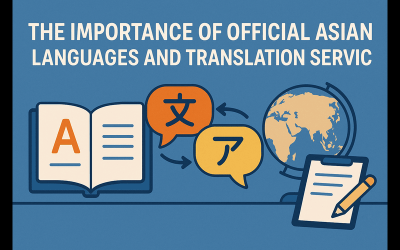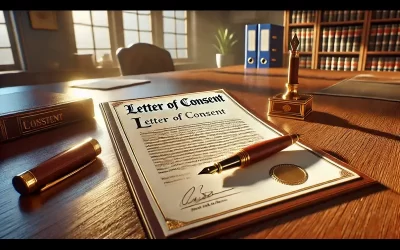The European Union (EU) is more than just an economic and political alliance—it is also a cultural mosaic. One of the most visible reflections of this diversity is the number of official languages spoken across member states. The EU recognizes 24 official languages, each representing the identity, culture, and history of millions of people.
Preserving these languages is a cornerstone of the EU’s commitment to cultural richness and democracy. Since language is the primary way societies express themselves, the EU’s multilingual framework ensures that its citizens feel included and secure. Every individual has the right to access services in their native language, which aligns with European values. To support this, the EU invests heavily in translation services, ensuring that official documents and legal texts are accessible in all 24 languages.
Table of Contents
ToggleOfficial Languages in the EU and Their Roles
The EU places great importance on maintaining its multilingual framework to serve all citizens equally. All EU laws, policies, and official documents are translated into the official languages. In the European Parliament, every representative has the right to speak in their native language. Additionally, translation and interpretation services facilitate direct communication between EU institutions and citizens.
Language policy is not just a legal necessity but also a critical tool for ensuring equality among EU citizens. If only a few dominant languages were used, some countries’ citizens might face disadvantages in decision-making processes. This is why the EU is committed to protecting linguistic diversity.
Certified Translation Services
Get your documents translated and certified by a professional translator in 120+ languages with 24 hour delivery.
Get a QuoteList of 24 Official Languages in the EU and Their Countries
The official languages of the EU are those that are recognized as national languages in the constitutions of its member states. Here is a breakdown of the 24 official languages and where they are spoken:
- English – Ireland, Malta
- French – France, Belgium, Luxembourg
- German – Germany, Austria, Belgium, Luxembourg
- Italian – Italy
- Spanish – Spain
- Portuguese – Portugal
- Dutch – Netherlands, Belgium
- Polish – Poland
- Czech – Czech Republic
- Slovak – Slovakia
- Hungarian – Hungary
- Romanian – Romania
- Bulgarian – Bulgaria
- Croatian – Croatia
- Greek – Greece, Cyprus
- Danish – Denmark
- Swedish – Sweden
- Finnish – Finland
- Maltese – Malta
- Lithuanian – Lithuania
- Latvian – Latvia
- Estonian – Estonia
- Irish – Ireland
The Status of English in the EU
Following Brexit, the role of English as an official language in the EU has been widely debated. However, since both Ireland and Malta recognize English as an official language, it remains one of the EU’s official languages.
English is also one of the most widely spoken second languages in Europe, making it a key working language within EU institutions. Many official documents are translated into English, and it remains the dominant language in international meetings. While this strengthens its role as a “bridge language,” some concerns have been raised about whether this could overshadow other European languages. Nevertheless, the EU’s commitment to multilingualism ensures that all languages continue to be promoted and preserved.
Is Linguistic Diversity an Advantage for Official Languages in the EU?
Although having multiple official languages can pose logistical challenges, language diversity is a major strength of the EU. It fosters cultural richness, strengthens unity among nations, and ensures equal representation. Encouraging language learning among citizens also enhances communication and mutual understanding across countries.
Moreover, multilingualism improves labor mobility within the EU, enabling workers to access job opportunities in different member states. It also strengthens diplomatic and international relations by allowing diverse perspectives to be heard.
Get a Translation Quote for Your Documents
Do you want a quick and easy way to obtain a professional translation service for your documents? Click on the desired button to access our online translation service!
Get a QuoteThe Importance of Translation and Interpretation Services
To support its linguistic diversity, the EU invests heavily in translation and interpretation services. Institutions such as the European Commission and the European Parliament employ large teams of translators to ensure that all official documents are available in 24 languages. This guarantees that all citizens can engage with EU policies and decisions, fostering transparency and democratic participation.
By removing language barriers, translation services ensure that no EU citizen is excluded from accessing critical information.
Multilingualism and Education in the EU
The EU actively encourages its citizens to learn multiple languages. Through its “mother tongue + two foreign languages” policy, the EU aims for children to start learning at least two additional languages at an early age.
This initiative helps boost employment opportunities, enhances cross-cultural understanding, and fosters integration among member states. People who speak multiple languages have a competitive advantage in the job market and can connect more easily with different cultures.
Why Multilingualism Matters for EU Citizens
For EU citizens looking to live, work, or study in another country, language skills offer significant benefits. From navigating job markets to integrating into social life and handling official paperwork, speaking multiple languages is a key advantage.
Additionally, multilingual individuals often develop stronger cognitive skills, problem-solving abilities, and adaptability, which benefit both their professional and personal growth.
The Future of Language Policies and Official Languages in the EU
With advancements in digital translation tools and AI-powered interpretation, overcoming language barriers is becoming easier. However, the need for native-language communication will never disappear. The EU remains dedicated to preserving linguistic diversity, ensuring that all citizens have equal access to information and services in their mother tongue.
Frequently Asked Questions (FAQs)
What are the official languages of the European Union?
The EU recognizes 24 official languages, with each member state having at least one official language.
Is English still an official EU language after Brexit?
Yes. Although the UK has left the EU, English remains an official language because it is recognized as an official language in Ireland and Malta.
Which is the most spoken language in the EU?
German is the most widely spoken native language in the EU. However, English remains the most commonly used second language.
Why does the EU encourage multilingualism?
Knowing multiple languages improves job opportunities, enhances cultural understanding, and facilitates living and working in different EU countries.
How does the EU determine its language policies?
Language policies are established through joint decisions among EU member states, ensuring that each country’s official language is equally represented.
How are translation and interpretation services managed in the EU?
The European Parliament and European Commission employ professional translation teams to ensure all official documents are accessible in 24 languages.
By prioritizing linguistic diversity, the EU upholds its democratic values, ensuring that all citizens can engage with European institutions regardless of their native language.
 Rana Maalouf
Rana Maalouf

